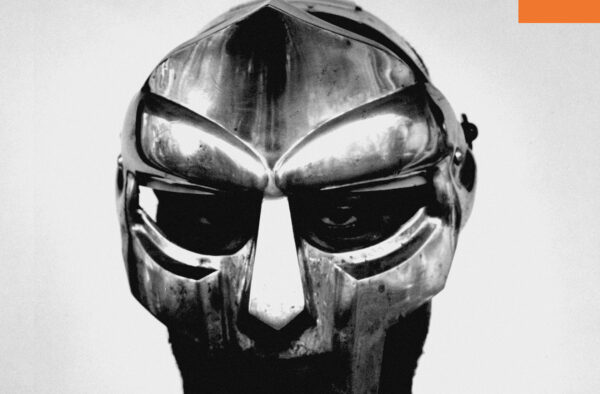Written by Jeff Weiss for LA Weekly, published December 8, 2011.
Stones Throw Celebrates 15 Years on December 22 at the Exchange in Los Angeles.
For a certain sect of music obsessives, a chance to tour Stones Throw Records' headquarters is like getting a golden ticket to Willy Wonka's chocolate factory. The two-story office-cum-emporium causes normally cool customers to tweak; walls and corners are covered with pictures, vintage toys and old show handbills for Madlib and J Dilla. The bathroom stall has a hand-drawn sketch of MF Doom at his most scatological.
The highlight is the downstairs stockroom, a bugout-inducing Valhalla of vinyl and CDs. Fuck Everlasting Gobstoppers; here lies the limitless reserve of everything released by the Los Angeles–based independent label in its decade and a half of existence. Fusion and free jazz. Esoteric afro-beat reissues. Skinny-tie soul. Modern funk. Garage rock. Broken beats. Minimal wave. Cosmic beat music. And a chocolate river's worth of hazy, psychedelic hip-hop.
Celebrating its 15th anniversary this month, Stones Throw is a Masada for those who never sold their turntables. There's an unspoken compact between the label and those who love what Madlib called "the old music." Collectors. Romantics. Sentimentalists.
"Our releases have always been whatever and whoever I've liked, whatever makes me excited at the time," says Peanut Butter Wolf, Stones Throw's founder and resident Wonka. Wearing a gray porkpie hat and T-shirt, the San Jose–born Chris Manak looks a decade younger than his 42 years. "It's all outsider music."
In the upstairs offices — made up of four large rooms and a small studio — a pencil sketch of Manak's late musical partner, Charizma, is framed above his desk. It starts a mini Stones Throw wall of fame, including the label's most iconic artists, the late J Dilla, Madlib and MF Doom. To a generation of underground rap fans, the trio might well be Mount Rushmore, a holy trinity that has accounted for six of its seven top-selling records in the United States: Madvillain's Madvillainy; J Dilla's Donuts and Ruff Draft; Jaylib's Champion Sound; and (Madlib alias) Quasimoto's The Unseen and The Further Adventures of Lord Quas. (The seventh is Mayer Hawthorne's A Strange Arrangement.) Madvillainy, the top seller, has moved just north of 150,000 copies.
It all began with Stones Throw's first release, 1996's "My World Premiere," a vinyl-only 12-inch from Charizma & Peanut Butter Wolf. Manak was the DJ half of the rap duo, who had been signed to Disney-owned Hollywood Records in the early '90s. But before their work could be released, the imprint's president died, and its hip-hop division folded. At the end of 1993, Charizma was murdered while resisting a robbery attempt in East Palo Alto.
Stones Throw was founded partly to create a legacy for Charizma, but also to fulfill Manak's lifelong dream of running a label. (Other goals, according to a 20-year-old list unearthed in Manak's parents' San Jose home, included appearances on In Living Color and Yo! MTV Raps, and a write-up in The Source.)
Though by 1996 major-label rap was getting glossy, the underground boom had begun, providing an opening for the stripped-down jazziness Manak favored. Almost immediately, the fledgling Stones Throw scored a hit with 1997's Super Duck Breaks, a DJ Babu–orchestrated breakbeat compilation aimed at turntablists. Unbeknownst to Manak, the firm they employed manufactured vinyl that wore out after repeated scratching.
"It meant that DJs bought four instead of two," Manak says, with a sheepish laugh. "It practically made me and Babu rich."
Around that time, Manak signed Oxnard's Lootpack, a trio produced by young Otis Jackson Jr. — known as Madlib. Like all Stones Throw deals before 2004, it was a handshake agreement, a 50-50 profit split once the advance was recouped.
"I didn't believe in contracts. In hindsight, it was very idealistic. You can't spell everything out in a handshake deal, like who's going to deal with sample clearances or what happens if a song gets licensed," Manak says.
A voracious record collector, Manak estimates that he owns every rap record pressed between 1979 and 1998. (For his Nov. 11, 2011, party at Center for the Arts, Eagle Rock, he brought with him 1,100 of his favorite albums.) But his tastes have been omnivorous since he got into Joy Division, the Smiths and Slave as a teenager. There also was a stint playing electric bass in his high school garage band, Electra, which he describes as "Beck before Beck."
While studying marketing at San Jose State, Manak produced a 12-inch for hip-hop act Lyric Prophecy, which instantly made him a neighborhood celebrity.
In 2000, Manak moved to L.A., partly to be closer to his reclusive nascent star, Madlib. He also hired current art director Jeff Jank and former general manager Eothen "Egon" Alapatt to complete the label's core of creative executives. For much of the first half of the decade, the four of them shared a house in Mount Washington, the site of Madlib's fabled Bomb Shelter studio.
READ THE REST
LA WEEKLY: STONES THROW RECORDS TURNS 15
